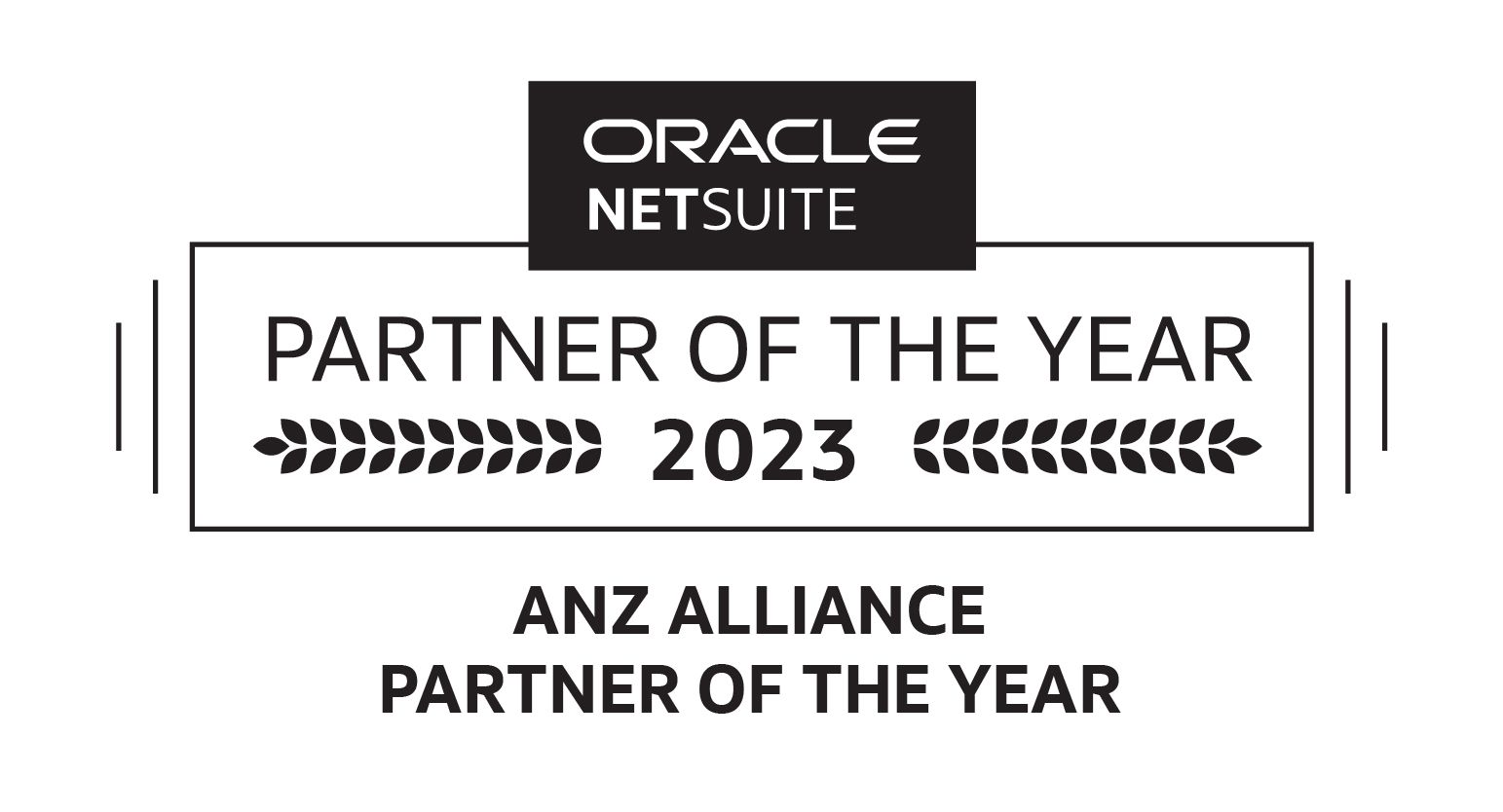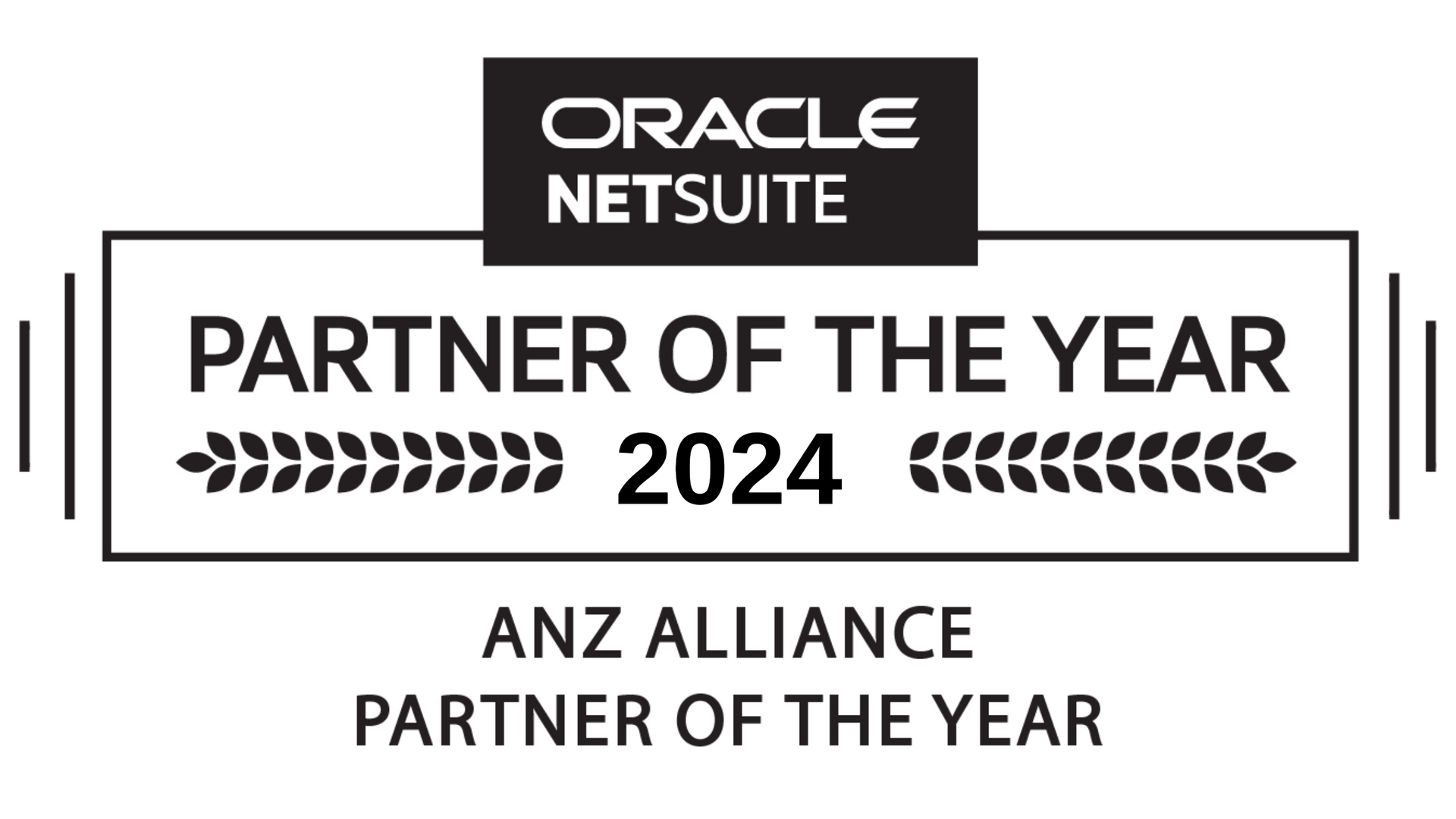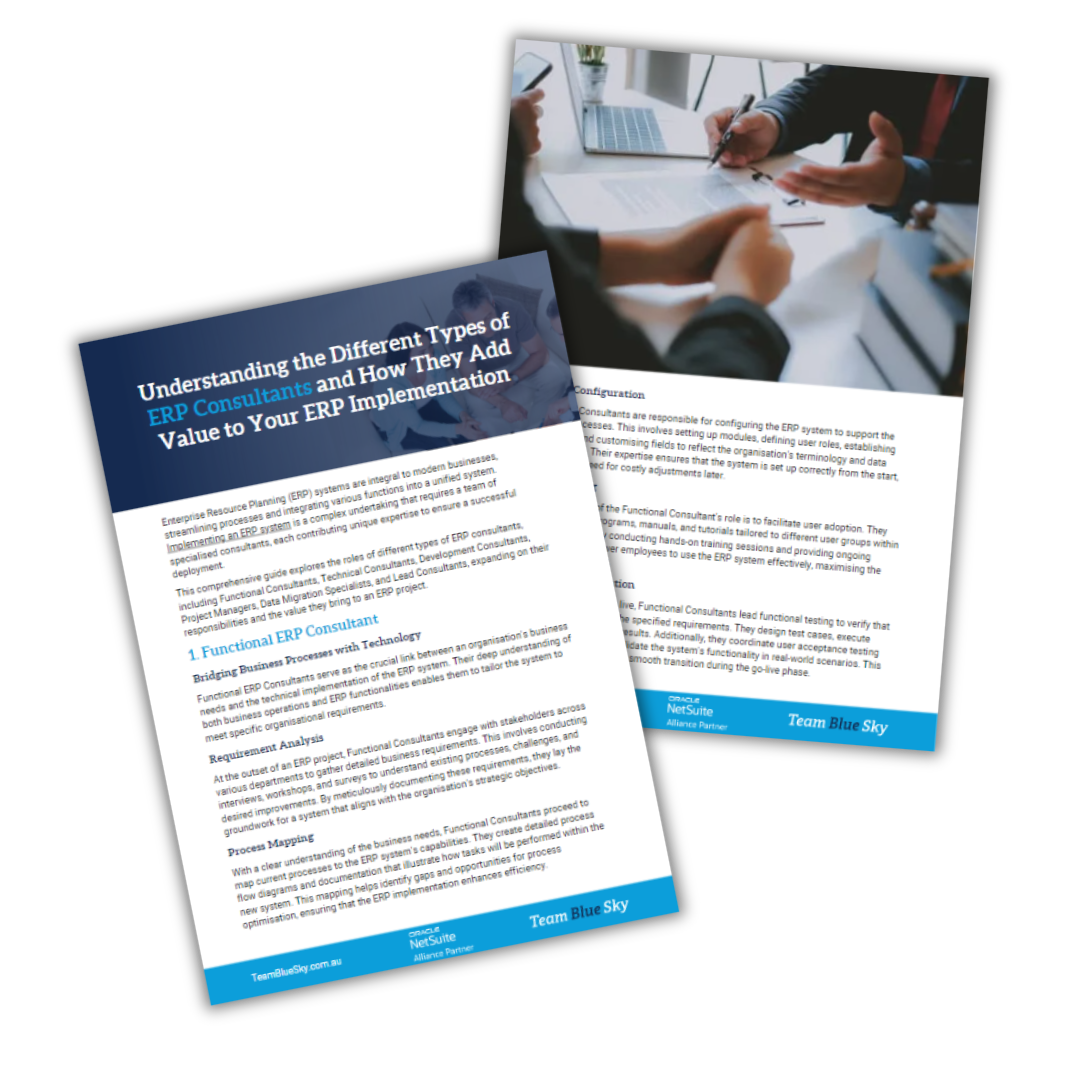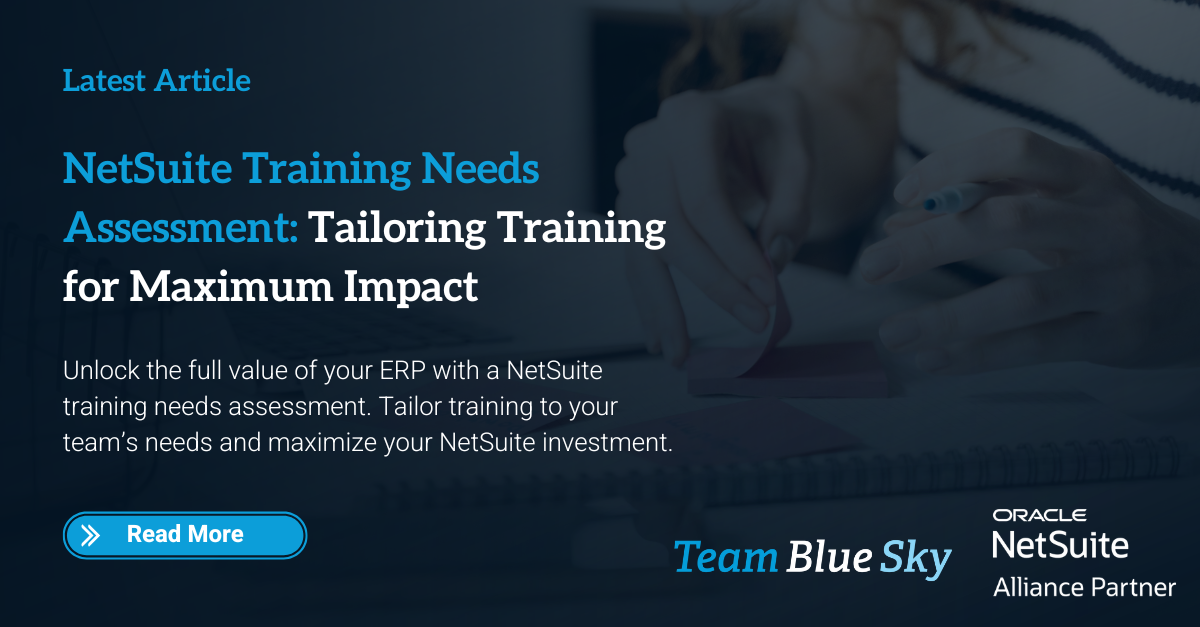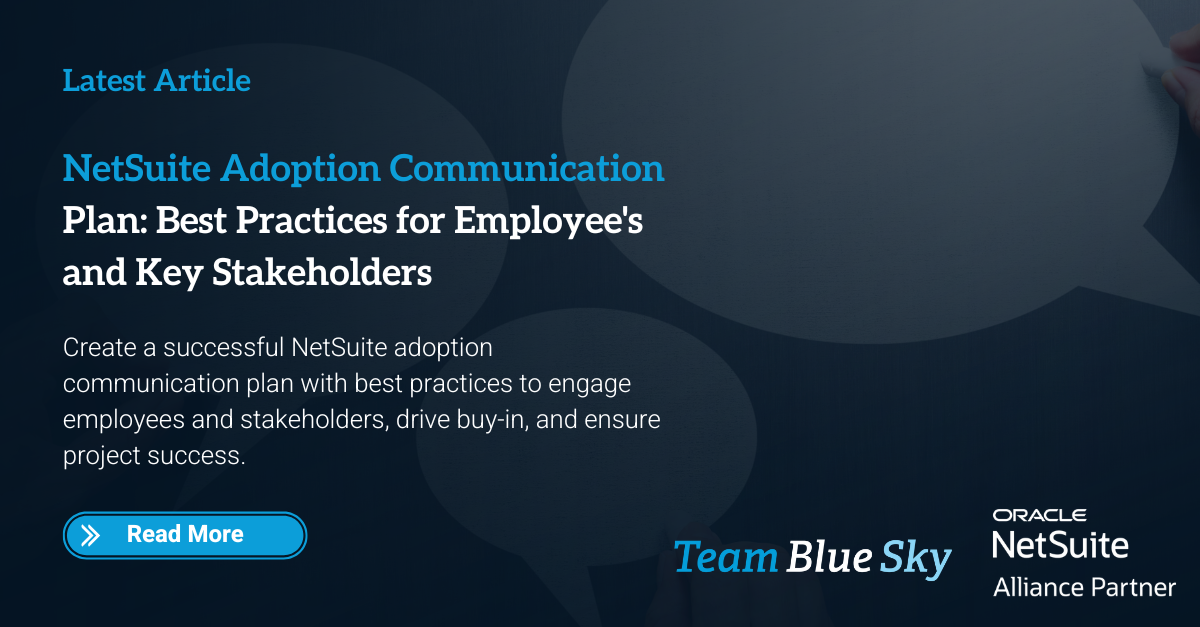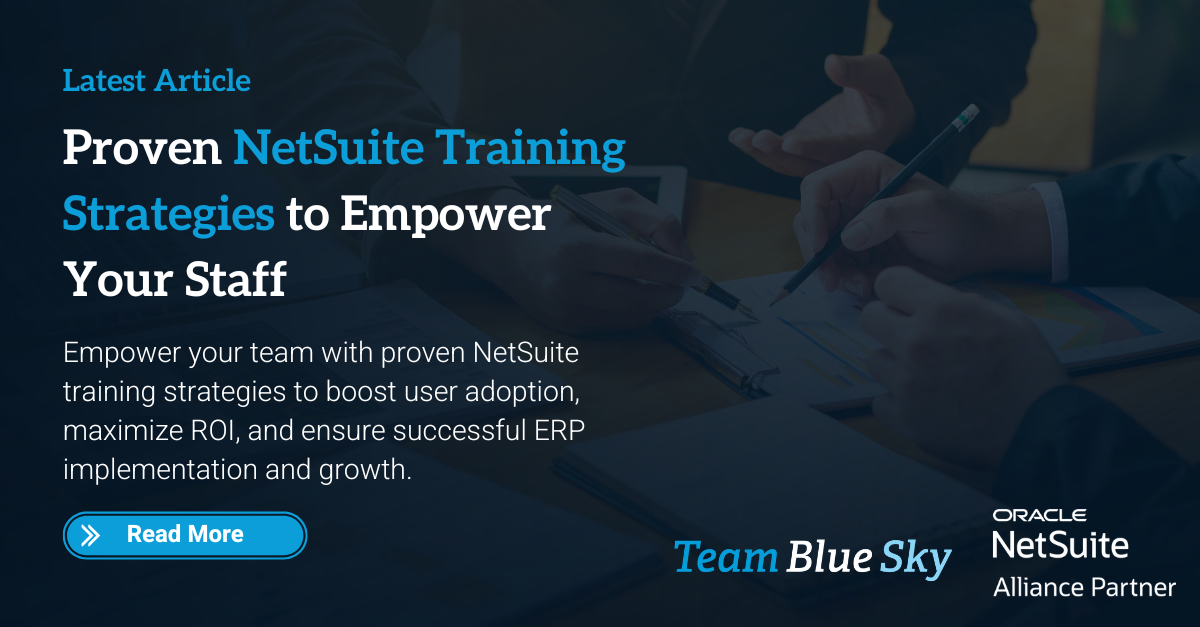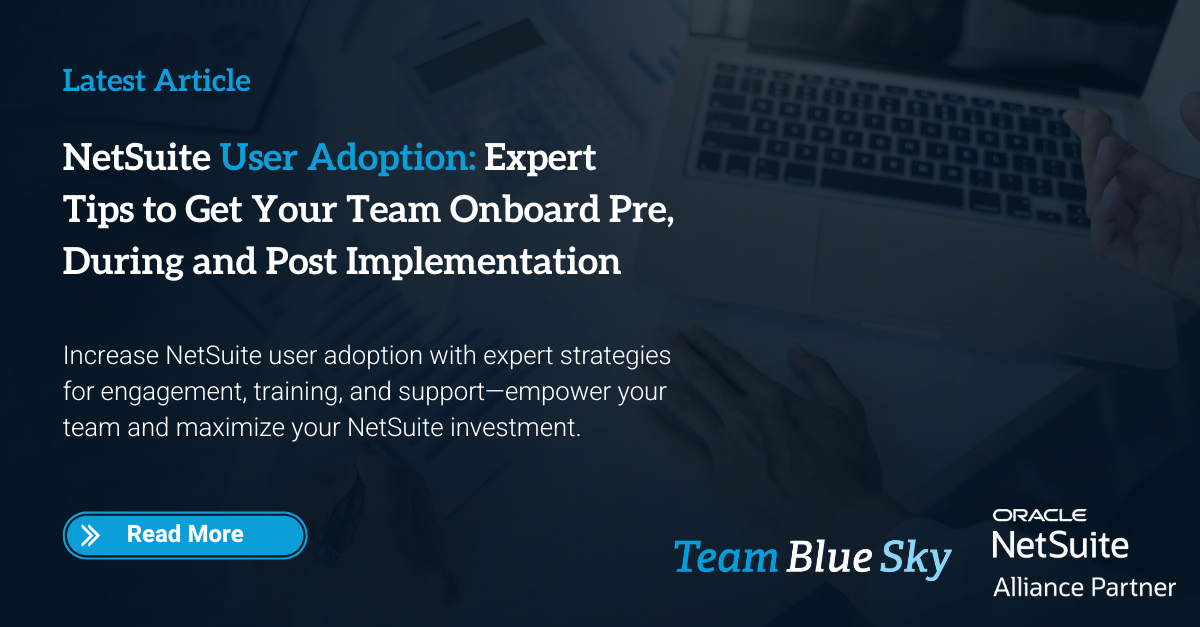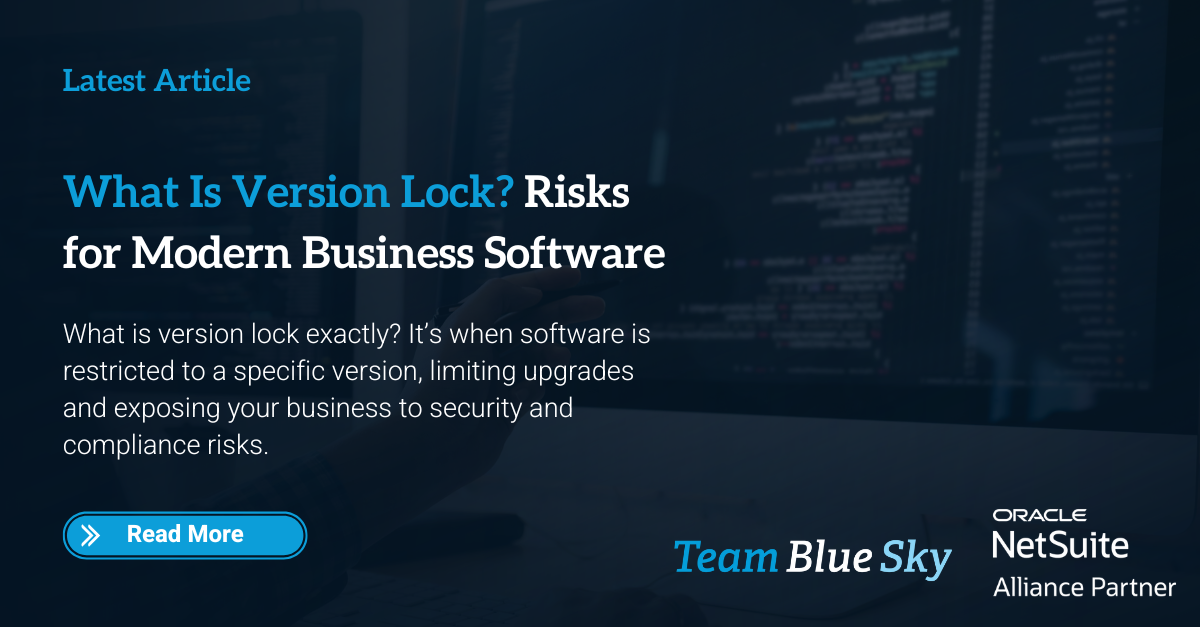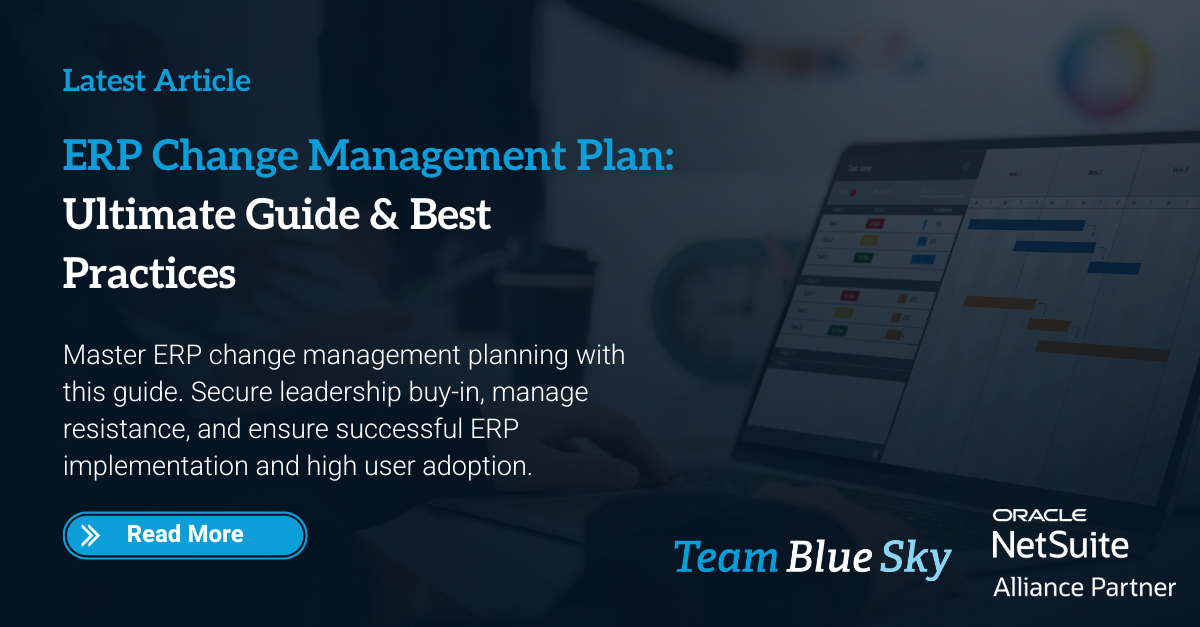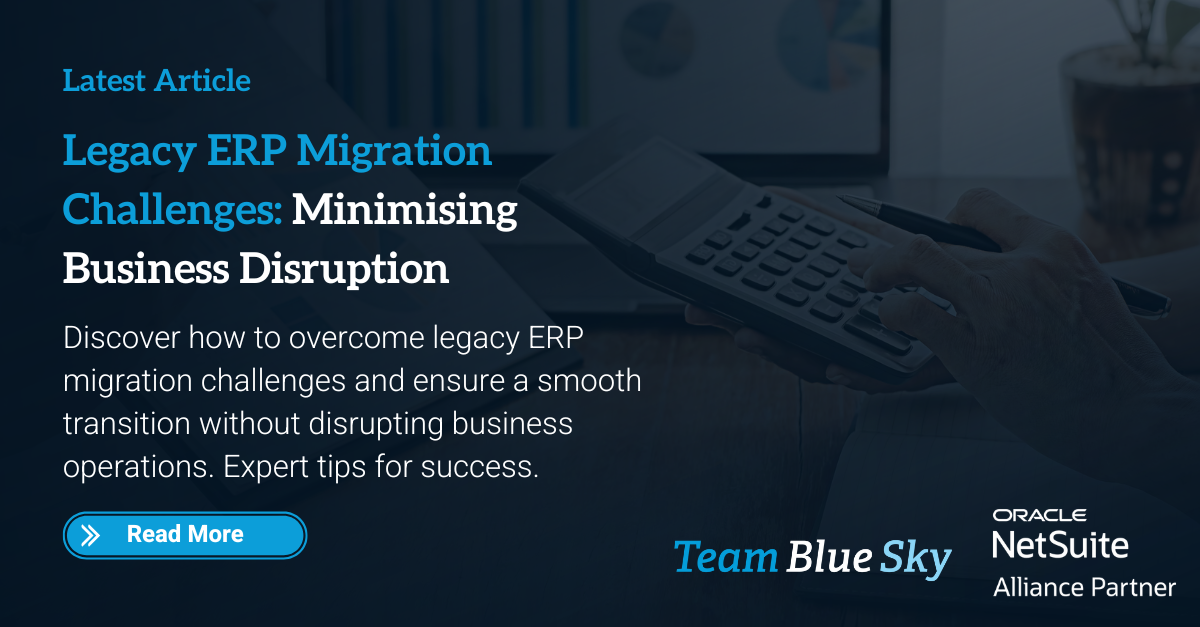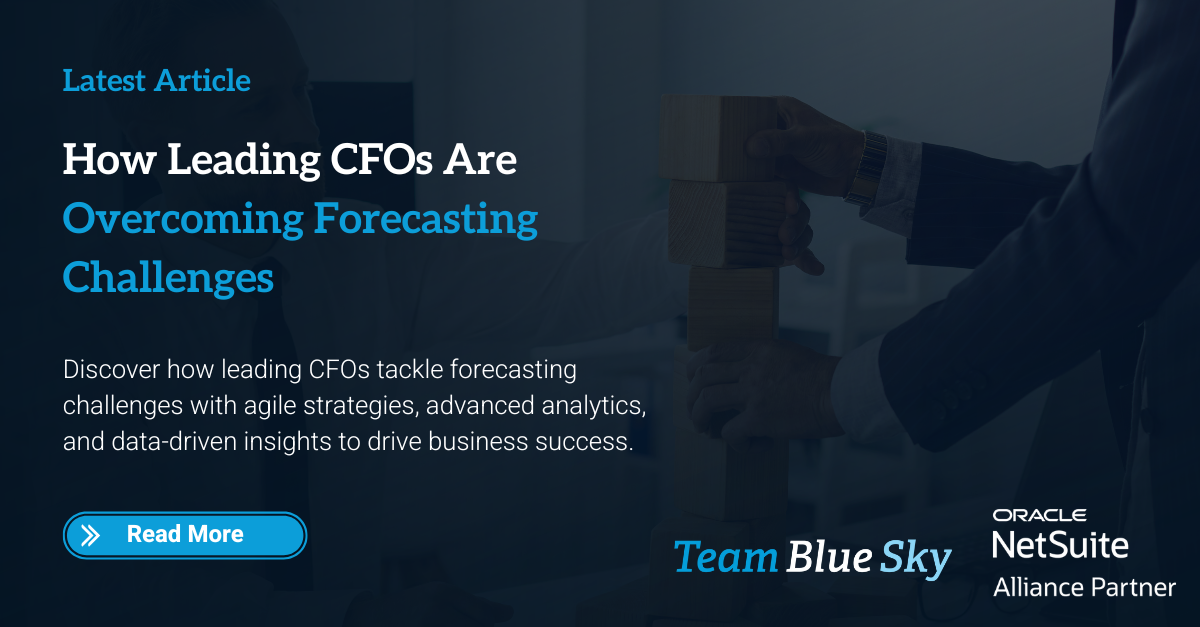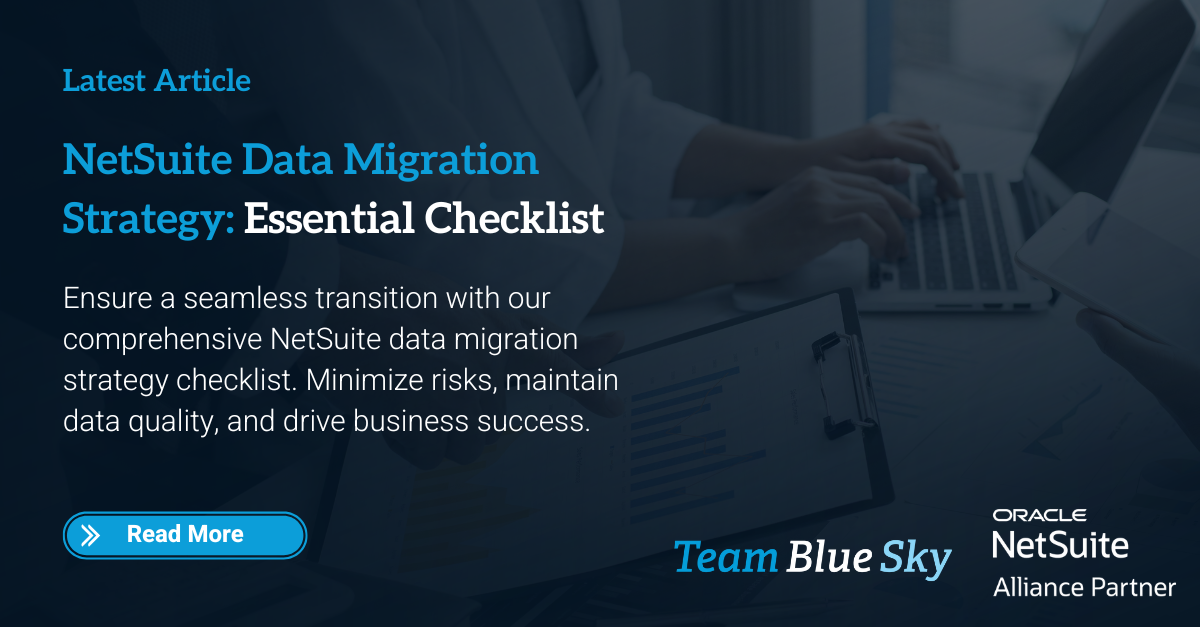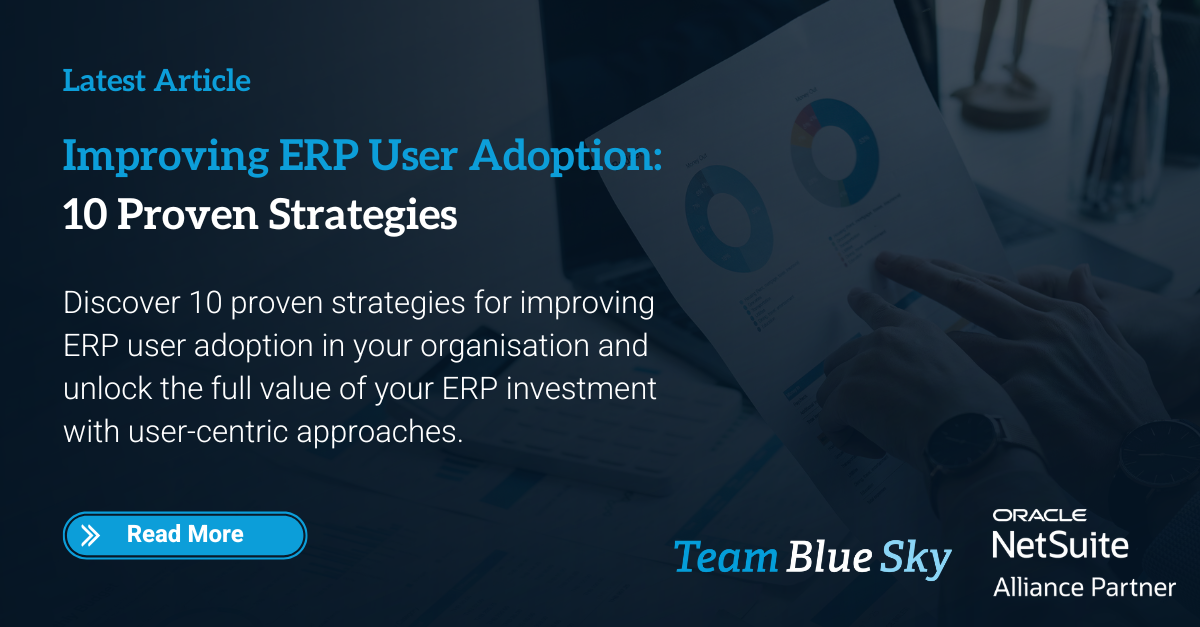Understanding the Different Types of ERP Consultants and How They Add Value to Your ERP Implementation
Enterprise Resource Planning (ERP) systems are integral to modern businesses, streamlining processes and integrating various functions into a unified system. Implementing an ERP system is a complex undertaking that requires a team of specialised consultants, each contributing unique expertise to ensure a successful deployment.
This comprehensive guide explores the roles of different types of ERP consultants, including Functional Consultants, Technical Consultants, Development Consultants, Project Managers, Data Migration Specialists, and Lead Consultants, expanding on their responsibilities and the value they bring to an ERP project.
1. Functional ERP Consultant
Bridging Business Processes with Technology
Functional ERP Consultants serve as the crucial link between an organisation's business needs and the technical implementation of the ERP system. Their deep understanding of both business operations and ERP functionalities enables them to tailor the system to meet specific organisational requirements.
Requirement Analysis
At the outset of an ERP project, Functional Consultants engage with stakeholders across various departments to gather detailed business requirements. This involves conducting interviews, workshops, and surveys to understand existing processes, challenges, and desired improvements. By meticulously documenting these requirements, they lay the groundwork for a system that aligns with the organisation's strategic objectives.
Process Mapping
With a clear understanding of the business needs, Functional Consultants proceed to map current processes to the ERP system's capabilities. They create detailed process flow diagrams and documentation that illustrate how tasks will be performed within the new system. This mapping helps identify gaps and opportunities for process optimisation, ensuring that the ERP implementation enhances efficiency.
System Configuration
Functional Consultants are responsible for configuring the ERP system to support the mapped processes. This involves setting up modules, defining user roles, establishing workflows, and customising fields to reflect the organisation's terminology and data requirements. Their expertise ensures that the system is set up correctly from the start, reducing the need for costly adjustments later.
User Training
A critical aspect of the Functional Consultant's role is to facilitate user adoption. They develop training programs, manuals, and tutorials tailored to different user groups within the organisation. By conducting hands-on training sessions and providing ongoing support, they empower employees to use the ERP system effectively, maximising the return on investment.
Testing and Validation
Before the system goes live, Functional Consultants lead functional testing to verify that all configurations meet the specified requirements. They design test cases, execute them, and document the results. Additionally, they coordinate user acceptance testing (UAT), where end-users validate the system's functionality in real-world scenarios. This thorough testing ensures a smooth transition during the go-live phase.
2. Technical ERP Consultant
Ensuring Technical Feasibility and System Integration
Technical ERP Consultants focus on the technological aspects of the ERP implementation, ensuring that the system's architecture is robust, scalable, and integrated seamlessly with existing infrastructure. Their role is pivotal in addressing technical challenges and enabling the system to perform optimally.
Technical Analysis
Technical Consultants begin by conducting a comprehensive analysis of the organisation's IT environment. They assess hardware capabilities, network configurations, security protocols, and compatibility with the ERP system's technical requirements. This analysis identifies any necessary upgrades or adjustments to support the new system effectively.
System Integration
Integration with other systems, such as Customer Relationship Management (CRM) tools, supply chain applications, or legacy databases, is often essential. Technical Consultants design integration solutions using middleware, APIs, or other technologies to enable data flow between systems. They ensure that integrations are secure, reliable, and maintain data integrity.
Customisation Support
When the ERP system requires custom technical solutions beyond standard configurations, Technical Consultants collaborate with Development Consultants. They provide insights into the system's architecture and guide the development of custom functionalities, ensuring that customisations are compatible with the overall system design.
Performance Optimisation
Technical Consultants are responsible for monitoring the ERP system's performance post-implementation. They identify bottlenecks, optimise database queries, manage system resources, and implement load balancing where necessary. Their proactive approach ensures that the system remains responsive and can handle increasing workloads as the organisation grows.
Technical Documentation
Maintaining detailed technical documentation is critical for ongoing maintenance and future upgrades. Technical Consultants document the system architecture, configurations, integration points, and any custom technical solutions implemented. This documentation serves as a valuable resource for IT teams and future consultants.
3. ERP Development Consultant
Customising and Extending ERP Functionality
ERP Development Consultants specialise in extending the ERP system's capabilities through custom development. They write code to create new functionalities, modify existing ones, and develop integrations that meet the organisation's unique requirements.
Customisation
Standard ERP systems may not cover all an organisation's specific needs. Development Consultants address this gap by developing custom modules, features, and enhancements. This could include creating specialised workflows, automating unique business processes, or developing new user interfaces that improve usability.
Integration Development
For seamless operations, the ERP system must communicate effectively with other applications. Development Consultants build custom integration solutions using APIs, web services, or middleware. They ensure that data synchronisation between the ERP system and other software is accurate and occurs in real time, reducing manual data entry and errors.
4. ERP Project Manager
Orchestrating the ERP Implementation Process
The ERP Project Manager oversees the entire ERP implementation, ensuring that it is completed on time, within budget, and meets the organisation's objectives. They coordinate between teams, manage resources, and serve as the central point of communication.
Project Planning
At the project's inception, the Project Manager develops a detailed plan outlining the scope, objectives, timelines, milestones, and deliverables. They use project management tools to schedule tasks, assign responsibilities, and establish clear expectations for all team members.
Resource Management
Effective resource management is crucial for project success. The Project Manager allocates human resources, budget, and materials efficiently. They balance workloads, manage team dynamics, and ensure that all necessary resources are available when needed.
Risk Management
Identifying potential risks early allows the Project Manager to develop mitigation strategies. They analyse factors that could derail the project, such as technical challenges, staffing issues, or external dependencies. By preparing contingency plans, they minimise the impact of unforeseen events.
Stakeholder Communication
Transparent communication with stakeholders, including senior management and end-users, is a key responsibility. The Project Manager provides regular updates on project status, addresses concerns, and facilitates decision-making processes. They ensure that all parties are informed and aligned with the project's progress.
Performance Monitoring
Throughout the project, the Project Manager monitors progress against the plan. They use metrics and KPIs to assess performance, identify deviations, and implement corrective actions. This ongoing oversight helps keep the project on track and ensures that objectives are met.
5. ERP Data Migration Specialist
Ensuring Data Integrity During Transition
ERP Data Migration Specialists handle the critical task of transferring data from existing systems to the new ERP system. Their expertise ensures that data is accurate, consistent, and secure, which is vital for the ERP system's effectiveness.
Data Assessment
Before migration, Data Migration Specialists evaluate the existing data landscape. They assess the quality, structure, and volume of data, identifying issues such as duplicates, inconsistencies, or obsolete records. This assessment guides the data cleansing and migration strategy.
Data Mapping
Data mapping involves defining the relationships between data fields in the old system and the new ERP system. Data Migration Specialists create detailed mapping documents that specify how each piece of data will be transformed and where it will reside in the new system. This step is crucial for maintaining data integrity.
Data Cleansing
To ensure that only accurate and relevant data is migrated, Data Migration Specialists perform data cleansing. This process includes correcting errors, standardising formats, removing duplicates, and validating data against business rules. Clean data enhances system performance and provides a reliable foundation for business operations.
Migration Execution
Using specialised ETL (Extract, Transform, Load) tools, Data Migration Specialists carry out the migration process. They extract data from the source systems, apply necessary transformations, and load it into the ERP system. This process is executed carefully to avoid data loss and minimise downtime.
Validation and Testing
Post-migration, Data Migration Specialists validate the data to ensure it has been transferred correctly. They perform data reconciliation, comparing source and target data, and conduct functionality tests to verify that the data supports business processes as intended. Any discrepancies are addressed promptly to maintain data integrity.
6. Lead ERP Consultant
Providing Strategic Direction and Oversight
The Lead ERP Consultant plays a strategic role in the ERP implementation, guiding the project to align with the organisation's long-term goals. They bring extensive experience and leadership to ensure that best practices are followed and that the project delivers maximum value.
Strategic Planning
Lead Consultants collaborate with executive leadership to understand the organisation's vision and strategic objectives. They develop an ERP implementation strategy that supports these goals, selecting appropriate technologies, modules, and approaches that will provide competitive advantages.
Team Leadership
As senior members of the project team, Lead Consultants mentor other consultants and foster a collaborative environment. They facilitate knowledge sharing, encourage professional development, and ensure that all team members are working cohesively towards common objectives.
Quality Assurance
Maintaining high standards is essential for project success. Lead Consultants establish quality assurance processes, conduct reviews of deliverables, and ensure adherence to industry best practices. Their oversight helps prevent errors and improves overall implementation quality.
Client Advisory
Lead Consultants act as trusted advisors to the organisation's stakeholders. They provide insights on optimising business processes, leveraging new technologies, and identifying opportunities for innovation. Their strategic guidance helps the organisation maximise the benefits of the ERP system.
Issue Resolution
When complex challenges arise, the Lead Consultant steps in to provide solutions. Whether addressing technical difficulties, functional misalignments, or project management issues, they use their expertise to navigate obstacles and keep the project on course.
Harnessing the Synergy of ERP Consultant Roles
Implementing an ERP system is a multifaceted journey that requires seamless collaboration among a diverse team of specialists. Each consultant - be it functional, technical, developmental, managerial, data-focused, or leading - brings unique expertise that contributes to different aspects of the project. Their combined efforts are not just beneficial but essential for a successful implementation.
A well-executed ERP system has the power to transform business operations, streamline processes, and provide a significant competitive advantage. By assembling a skilled team of consultants, setting clear objectives, and fostering open communication, organisations can effectively navigate the complexities of ERP implementation. This collaborative approach leads to long-term operational excellence, actionable insights, and supports the organisation's growth objectives.
Ready to Transform Your Business with Expert ERP Implementation?
At TeamBlueSky, we specialise in bringing together top-tier ERP consultants who work in harmony to deliver robust, customised solutions tailored to your organisation's unique needs. Our comprehensive services ensure that every facet of your ERP project is handled with expertise and precision.
Don't navigate this complex journey alone. Let TeamBlueSky be your
trusted partner in achieving operational efficiency and driving sustainable growth.
Contact us today to discover how we can help you harness the full potential of your ERP system.

Henry Sack
General Manager

With over 12 years of experience as a NetSuite implementation consultant, Henry Sack leads TeamBlueSky’s team of NetSuite and accounting experts in his role of General Manager.
TeamBlueSky is a leading Australian
NetSuite Alliance Partner whose mission is to provide critical
NetSuite BPO and
Payroll services to NetSuite clients who are wanting to simplify their
back office processes and partner with a leading
NetSuite administration expert.
TeamBlueSky have also partnered with global Suite Developer Network partners to offer local solutioning, implementation and support services for global NetSuite SuiteApps.


